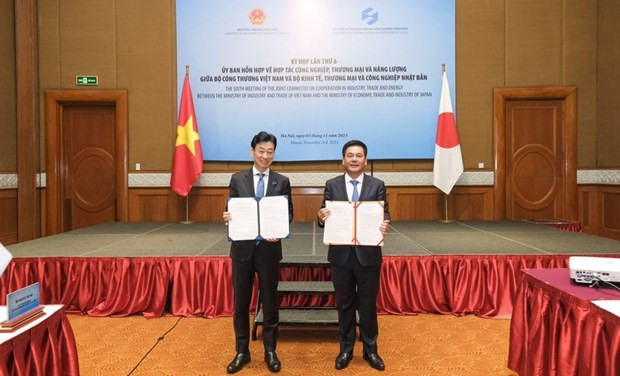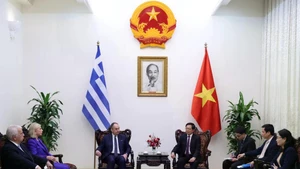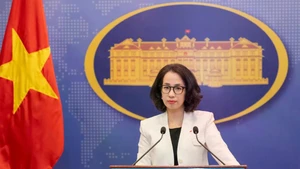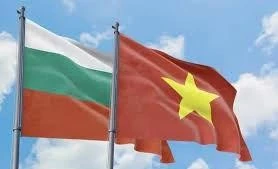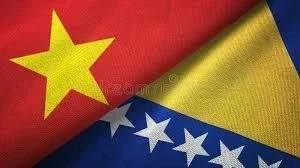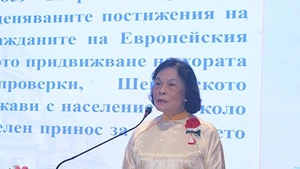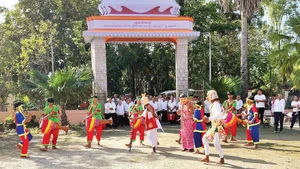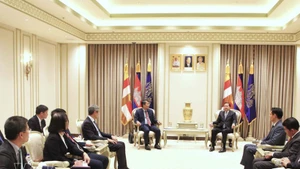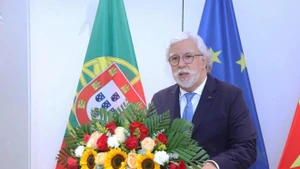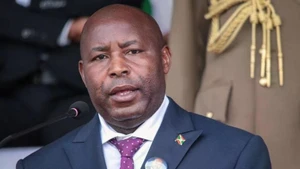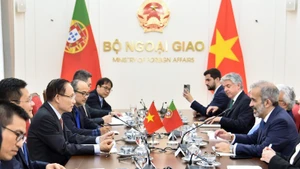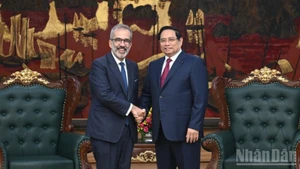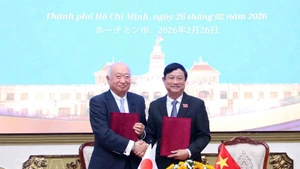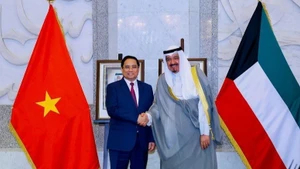Expressing their satisfaction with the significant attainments recorded since the fifth meeting in Tokyo in August 2022, Vietnamese Minister of Industry and Trade Nguyen Hong Dien and Japanese Minister of Economy, Trade and Industry Nishimura Yasutoshi reaffirmed the importance of the Joint Committee in tackling difficulties and ensuring stable and continuous development of bilateral trade and investment ties.
They discussed ways for the two countries to step up cooperation in fostering trade and investment, enhancing supply chain resilience, developing the digital economy, boosting renewable energy and low-carbon emissions, and accelerating industrialisation in Vietnam.
Dien spoke highly of Japanese investors’ contributions to the improvement of production capacity in Vietnam, helping many local firms join supply chains of Japanese and global businesses over the past years.
He asked for coordination from the Japanese Ministry of Economy, Trade and Industry to create favourable conditions and encourage more Japanese businesses to shift their investments and supply chains to Vietnam, especially in key and supporting industries.
Both ministers also applauded the cooperation results in the automobile industry. Dien said he hopes the two sides will keep sharing information, experience, and policies on developing environmentally friendly vehicles.
The two officials agreed to establish a joint working group between their ministries to build co-creation projects to boost future-oriented industries such as semiconductor, artificial intelligence, space, and biotechnology, which they said are inevitable trends positively affecting the countries’ socio-economic development.
In terms of trade, Dien and Nishimura looked into the collaboration in promoting economic integration in Asia-Pacific by fruitfully implementing the new-generation free trade agreements and multilateral cooperation frameworks to which both Vietnam and Japan are parties.
They welcomed the official entry into force of the Comprehensive and Progressive Agreement for Trans-Pacific Partnership (CPTPP) in the founding members, and the UK becoming the 12th member economy of this deal in 2023.
They agreed that the expansion of the CPTPP membership should be based on the maintenance of this pact’s high standards as well as the experience gained during the negotiation on the admission of the UK.
Both host and guest shared the view that the establishment of a unit for supporting the Regional Comprehensive Economic Partnership (RCEP) will help the enforcement of this agreement turn highly productive. They also highly valued some economies’ attention to engaging in the RCEP.
Within the Indo-Pacific Economic Framework for Prosperity (IPEF), they applauded the finalisation of the negotiations on Pillar II on supply chains, paving the way for the members to complete domestic procedures and sign it in the coming time.
Amid the unpredictable, and slow global economic recovery, the two sides agreed to work closely to seek concrete measures to raise bilateral trade in a balanced manner, foster ties in developing e-commerce and digital economy, open their countries’ markets to each other’s agricultural products, and carry out more activities to create opportunities for businesses to increase trade and investment.
With regard to energy cooperation, Nishimura lauded Vietnam’s approval of National Power Development Plan VIII and efforts in energy transition, including becoming one of the first countries to participate in the Just Energy Transition Partnership (JETP). He considered this an important legal basis for major businesses in Japan to boost investment in Vietnam’s energy sector.
Highly valuing the Asia Zero Emission Community (AZEC) initiated by Japanese Prime Minister Kishida Fumio, Dien expressed his delight that the meeting launching the AZEC promotion working team took place in Hanoi last October. He affirmed the Vietnamese ministry’s readiness to coordinate with the Japanese ministry to ensure success for the coming AZEC high-level meeting in Japan.
At the event, the officials appreciated the efforts of ministries from both countries to draft and ask for the early signing of a cooperation document on energy transition to support the process in Vietnam.
In particular, the two ministers agreed to work closely to help address obstacles to some energy projects Japanese investors take part in, and promote partnerships in biomass energy, offshore wind power, and rare earth development.
Dien welcomed the cooperation goodwill of Japanese businesses, noting that his ministry is coordinating with relevant agencies of Vietnam to speed up energy projects of companies from both countries.
The Vietnamese Government always supports and provides optimal conditions for foreign investment projects that can help the country with effective and sustainable energy transition to achieve the target of net zero emissions by 2050, he stated.
At the event, the ministers also witnessed the handover of some cooperation documents between Vietnamese and Japanese firms.
